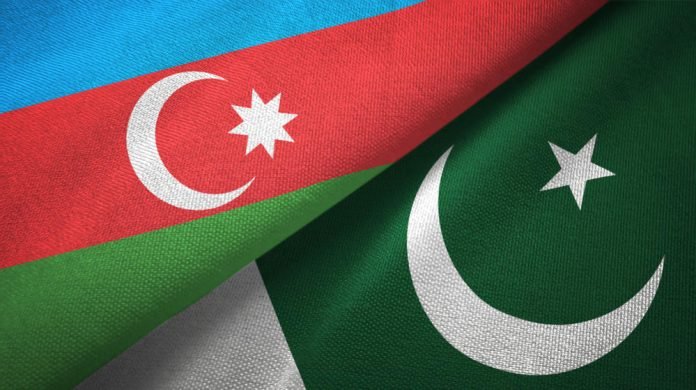Islamabad, 16 September 2022 (TDI): The Prime Minister of Pakistan, Shehbaz Sharif expressed his grief over the loss of more than 70 Azerbaijani servicemen in an unprovoked attack by Armenia.
He also conveyed solidarity to the President of Azerbaijan, Ilham Aliyev, on his and the behalf of people of Pakistan. Along these lines, he enunciated that Pakistan supports Azerbaijan’s right to defend its territorial integrity.
Dear brother @presidentaz, we are saddened on hearing news of the loss of more than 70 Azerbaijani servicemen in unprovoked attack by Armenia. The people of Pakistan stand in solidarity with their brethren & support Azerbaijan’s right to defend its territorial integrity.
— Shehbaz Sharif (@CMShehbaz) September 16, 2022
Conflict on the Armenian-Azerbaijani border
According to the latest reports, 70 of Azerbaijan’s troops were killed during the aggression launched by Armenia. This has been marked as the worst fighting between the two countries since 2020.
Although the two sides had negotiated a ceasefire, which took effect Wednesday at 8 p.m. local time (16:00 GMT), the Armenian side violated it by its unwarranted attack.
Also read: Statement of Azerbaijan on Armenian provocation
This latest bout of escalation between Armenia and Azerbaijan first broke out in the early hours of Tuesday morning and took place in areas around the Nagorno-Karabakh region.
Azerbaijan’s Defense Ministry stated that disruptive activities on a significant scale were recorded near the surrounding districts of Dashkesan, Kelbajar, and Lachin. The Azerbaijani soldiers stationed there came under fire, particularly from trench mortars.
The European Union (EU), as well as the United Nations (UN), have been mediating between Armenia and Azerbaijan to diffuse the situation.
Nagorno-Karabakh Dispute and the 44 Day War
Nagorno-Karabakh is a landlocked area in the South Caucasus, located within the hilly range of Karabakh and encompassing the southeastern range of the Lesser Caucasus highlands. The terrain is primarily mountainous and forested.
Also read: EU contributes to de-escalation between Armenia, Azerbaijan
Nagorno-Karabakh is an internationally recognized disputed territory that rightfully belongs to Azerbaijan. On 27 September 2020, a war between Azerbaijan and Armenia erupted in Nagorno-Karabakh and the surrounding territories.
Azerbaijan made significant gains during the war, regaining most of the occupied territories surrounding Nagorno-Karabakh and large parts of Nagorno-Karabakh, including the culturally significant city of Shusha.
The war ended on 10 November 2020, when a trilateral ceasefire agreement was signed between Azerbaijan, Armenia, and Russia, which forced Armenia to return all the remaining occupied territories surrounding Nagorno-Karabakh.
Armenia-Azerbaijan Relations: An Overview
Armenia and Azerbaijan are both in eastern Europe and were under Soviet rule during the Cold War. Both countries gained independence following the culmination of the Cold War.
The primary source of contention between them is the Nagorno Karabakh territory, which rightfully belongs to Azerbaijan but is a disputed region because of the unlawful Armenian presence, following the dissolution of the USSR.
Also read: Victory Day: Statement of Ministry of Foreign Affairs of Azerbaijan
This area is mainly forested and mountainous. As a result, they are sparsely populated, but they are ethnically Armenian Christians who desired to be a part of Armenia. However, during the Soviet administration, Azerbaijan controlled Nagorno Karabakh territory.
Consequently, following independence, Armenian separatists attacked Nagorno Karabakh and occupied the majority of the region, justifying their assault with ethnonational commonalities.
In response, Azerbaijan also began employing its army in response to sovereignty violations. The conflict has continued ever since.
Although the Presidents of Armenia and Azerbaijan signed an agreement in 2020 that would establish long-term peace, the military skirmishes persist.
I'm a detail-oriented, problem-solving, persistent multitasker. Having a magna cum laude MSc. in Strategic Studies from National Defense University, Pakistan, I believe in peaceful discourse & dialogue and have built my interest in nontraditional security threats.
I am an experienced writer with a primary focus on public policy, environmental security, nuclear strategy, and geopolitics!








